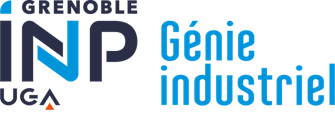Number of hours
- Lectures 18.0
- Projects -
- Tutorials 18.0
- Internship -
- Laboratory works -
- Written tests 1.5
ECTS
ECTS 3.0
Goal(s)
Economic analysis of markets and company organisation is an essential part of industrial engineering studies. Industrial engineering careers aim to provide efficient conditions in terms of value creation and profitability.
This course presents, in a systematic way, the main tools for economic analysis which are necessary for industrial engineering careers.
Content(s)
The course is structured in three parts that combine lectures and tutorials (TD):
- Individual Decision-Making and Collective Behavior:**
An introduction to major issues related to decision-making, strategic interactions, coordination, and motivation. The course explores individual and collective behaviors, aiming to formalize and theorize these problems. Students are introduced to marginal reasoning and the concept of equilibrium.
In tutorials, students are:
(i) placed in real-life situations (experimental economics) where they must make actual decisions in a variety of contexts;
(ii) guided through exercises involving formalization and case-solving.
- Market and Competition Economics and Business Strategy Analysis:**
An introduction to the tools used to analyze markets and competition. The objective is to provide students with the foundational knowledge required to operate effectively in markets from a business perspective.
Focus is placed successively on market structures, the nature of traded goods, and the presence of externalities.
Students learn to use economic tools to formalize horizontal and vertical competition: monopolies and oligopolies, entry barriers, substitute products, competition with suppliers and customers. Tactical issues such as pricing strategies and product differentiation are emphasized. Basic aspects of public regulation of competition are also presented.
Regarding externalities, students discover the importance of property rights as incentive mechanisms for businesses. Examples are drawn from the domains of scarce resources and the environment (negative externalities), and from research and development (positive externalities). The main instruments for regulating externalities are introduced, with particular attention paid to the fight against climate change.
- Macroeconomics:
This part introduces key national accounting concepts (GDP, value added, HDI) to help understand the role of economic growth in the development of countries.
Monetary creation is analyzed to help future engineers understand the role of money and debt, with special attention paid to new forms of currency.
Globalization and international trade are also studied to better understand the role of global commerce and the effects of tariffs on the development of economies.
E1 = Final written exam from 1st exam period
E2 = Written or oral exam from 2nd exam period
N1 = Final mark from 1st exam period
N2 = Final mark from 2nd exam period
The course exists in the following branches:
- Curriculum - Engineer student Bachelor - Semester 5
Course ID : 3GMC0415
Course language(s): 
You can find this course among all other courses.
Générale sur l'ensemble du programme :
Economics for a changing world COREECON https://www.core-econ.org/the-economy/
Joseph Stiglitz, Economics
French State controlled diploma conferring a Master's degree

Common Core presentation
Programme courses S5
Programme courses S6
Supply Chain Management
Programme presentation
Programme courses S7
Programme courses S8
Programme courses S9
Programme courses S10
Product Design
Programme presentation
Programme courses S7
Programme courses S8
Programme courses S9
Programme courses S10
Contacts
Academic staff
- Head of studies:
Pierre Lemaire - Head of 1st Year Program:
Abdourahim Sylla - Head of Supply Chain Management Program:
Irène Gannaz - Head of Product design Program:
Yann Ledoux
Registrar's office
- Head of Registrar's office:
genie-industriel.scolarite@grenoble-inp.fr - Secretary's office 1st Year:
Valérie Demicheli - Secretary's office 2nd Year:
Sylvie Malandrino - Secretary's office 3rd Year:
Vincente Odier - International relations department:
Nadia Dehemchi



